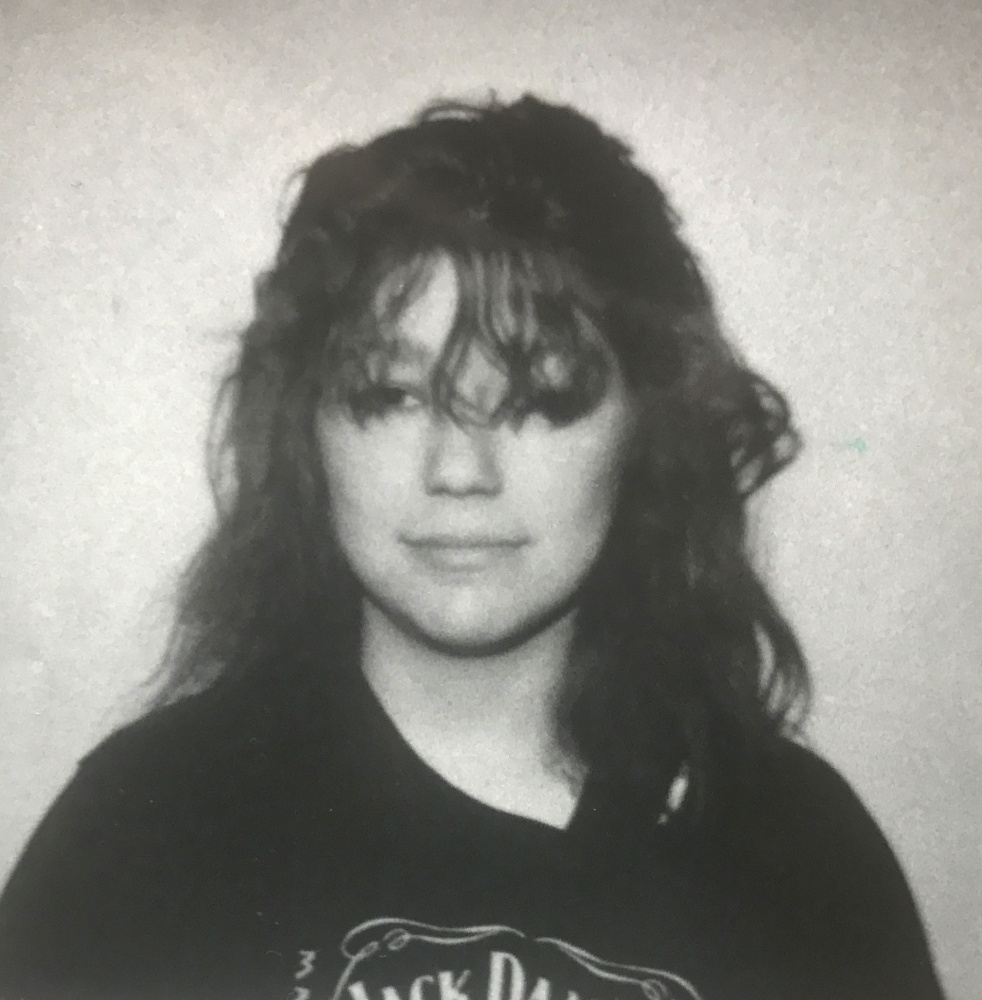An unidentified man threatened to kill Jessica Briggs about 36 hours before the 16-year-old girl’s brutally stabbed body was found floating off the Portland waterfront in 1989, a friend of the slain teenager testified Thursday.
The revelation about the threat came during a review of the case against Anthony H. Sanborn Jr., who was convicted of Briggs’ murder in 1992. He was freed on bail in April after the only eyewitness to the stabbing recanted her testimony, and Sanborn’s lawyers, alleging police and prosecutorial misconduct, launched an effort to get the conviction overturned through a post-conviction review before Justice Joyce A. Wheeler.
On Thursday, Robert Miller, who now lives in Canaan, told Wheeler that he was part of a group of teenagers and young adults who spent most of their time on the streets in Portland in the late 1980s and early 1990s.
Miller said that he, Briggs and two others met up late at night on May 22, 1989, and walked on Congress Street. Around 1 a.m. on May 23, a man in his 30s or 40s who appeared to know Briggs drove up in a Mercedes and beckoned her to his car, Miller said.
“He called her over to the car and asked her if she wanted to have a good time,” Miller said, noting he was about 5 feet away and could hear their exchange.
When Briggs said no, Miller said, the man grabbed her arm and she responded by punching him in the face three times.
Miller testified that the man drove off, then turned his car around and drove back, as if to run Briggs down, yelling, “I’m going to kill you, bitch,” as he drove past.
Miller said he tried three times to tell Portland police about the incident after Briggs’ body was found off the Maine State Pier early on the morning of May 24, 1989. He tried once a few days after the murder and then twice in 1990, he said.
He never got past the lobby of police headquarters on Middle Street, Miller said, and wasn’t asked to give a statement or testify in the trial.
“I was pretty much blown off,” Miller said. He did talk briefly to Detective James Daniels, the lead detective on the Briggs case, the second time that he went to police, Miller said, but “he told me they had their suspect.”
The third time, Miller said, he wasn’t even allowed to enter the building, so he gave up after that.
Two assistant state attorneys who are defending the conduct of prosecutors and seeking to have the conviction upheld tried to poke holes in Miller’s testimony and got him to admit that he didn’t know the color of the Mercedes.
Miller said he believes it was black, but a friend who was with him that night said he remembered the car as silver or white, so he isn’t sure.
Sanborn’s lawyers have argued that police focused too quickly on their client, who had dated Briggs briefly before the murder, and failed to turn over evidence that might have cleared him. Witnesses in the initial trial also have come forward to say that police either ignored their information because it pointed to suspects other than Sanborn, or intimidated them into making false statements that implicated Sanborn, who has maintained his innocence.
One was Gloria Brosseau, who was 15 and named Gloria Staples when she met Briggs early in 1989.
Shortly after they met, Briggs would climb in Brosseau’s window to sleep in her room and then sneak out in the morning, Brosseau testified. Briggs then would walk around to the front of the house and knock on the door, asking Brosseau’s mother if Gloria was in. Brosseau’s mother quickly caught on and invited Briggs, who had run away from the Maine Youth Center in South Portland, to live with them, Brosseau said Thursday.
Brosseau said she repeatedly pressed police for answers in the weeks following Briggs’ murder, but in the fall, they began to press her for details on Sanborn and his roommate, Gerard Rossi. The two lead detectives, Daniels and Danny Young, she said, showed up at her house repeatedly and even picked her up at her high school to drive her home, where they pressed the teen to give them information they needed to make a case against Sanborn.
“They were bullies. They wanted answers and they wanted their answers, they made it very clear,” she testified Thursday. “They sat at my mother’s table and asked me the same questions 10 times and then they would tell me what they wanted the answers to be.”
Finally, Brosseau said, still grieving her friend’s murder and dealing with the stress of repeated questioning by police, she broke.
“I began to make false statements because I just couldn’t take it anymore. I lied,” she said. “I wanted them to leave me alone. They were relentless.”
Police and prosecutors have denied wrongdoing in the investigation and the trial.
Brosseau is expected to continue her testimony Friday.
The review that began Oct. 10 was scheduled end Wednesday, but has run long with detailed questioning about the detectives’ notes of interviews from the investigation.
On Thursday, Wheeler said she hopes to wrap up the proceedings before she leaves for a scheduled vacation on Nov. 17. Wheeler, an active-retired judge, said if that’s the case, she expects to draft her ruling in January.
Edward D. Murphy can be contacted at 791-6465 or at:
emurphy@pressherald.com
Send questions/comments to the editors.




Comments are no longer available on this story